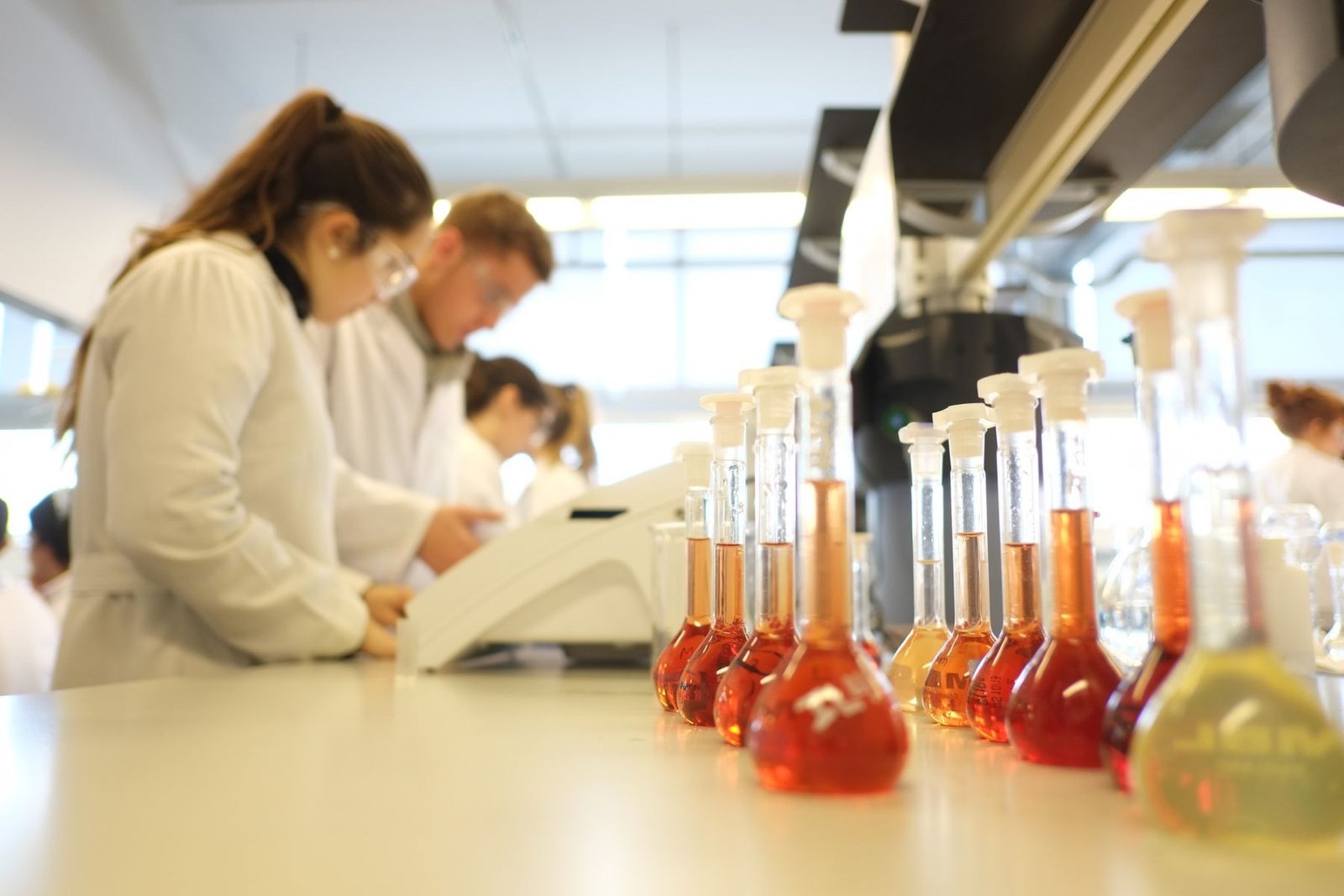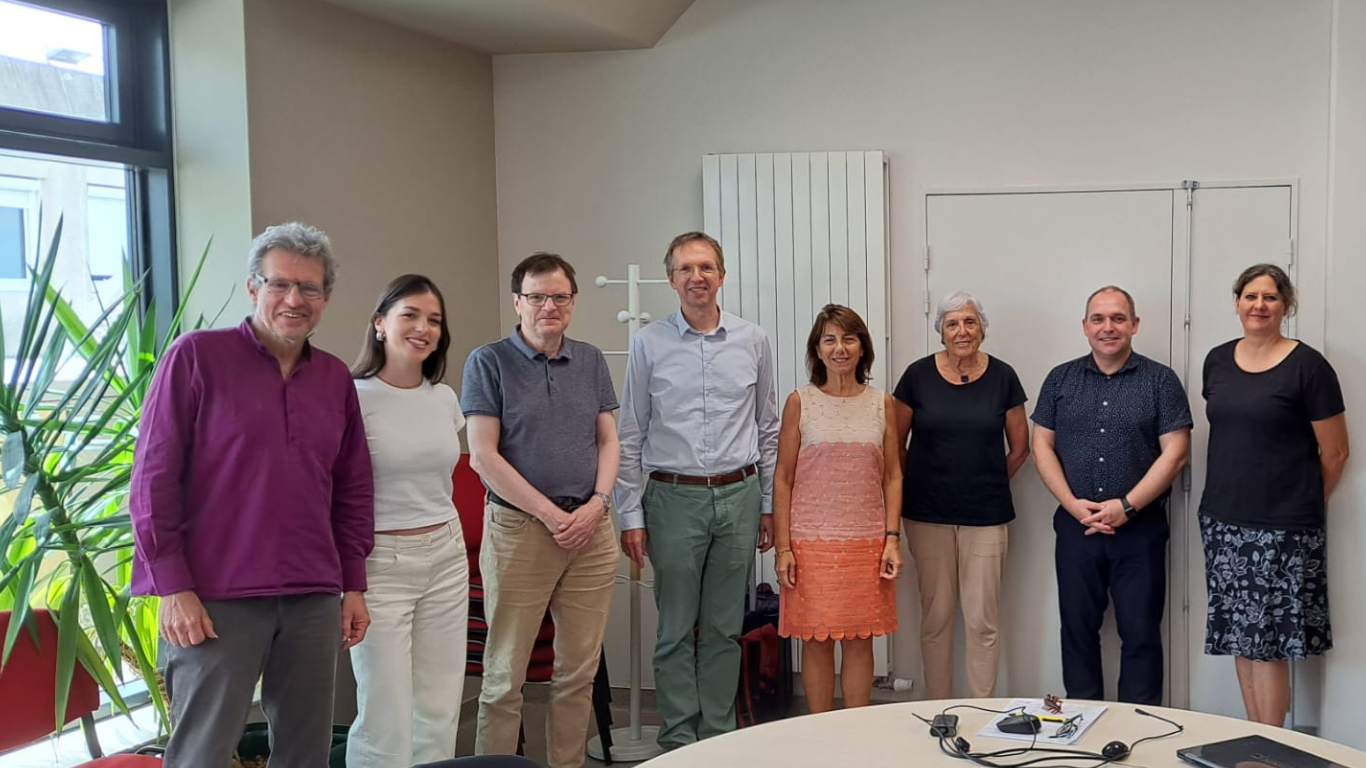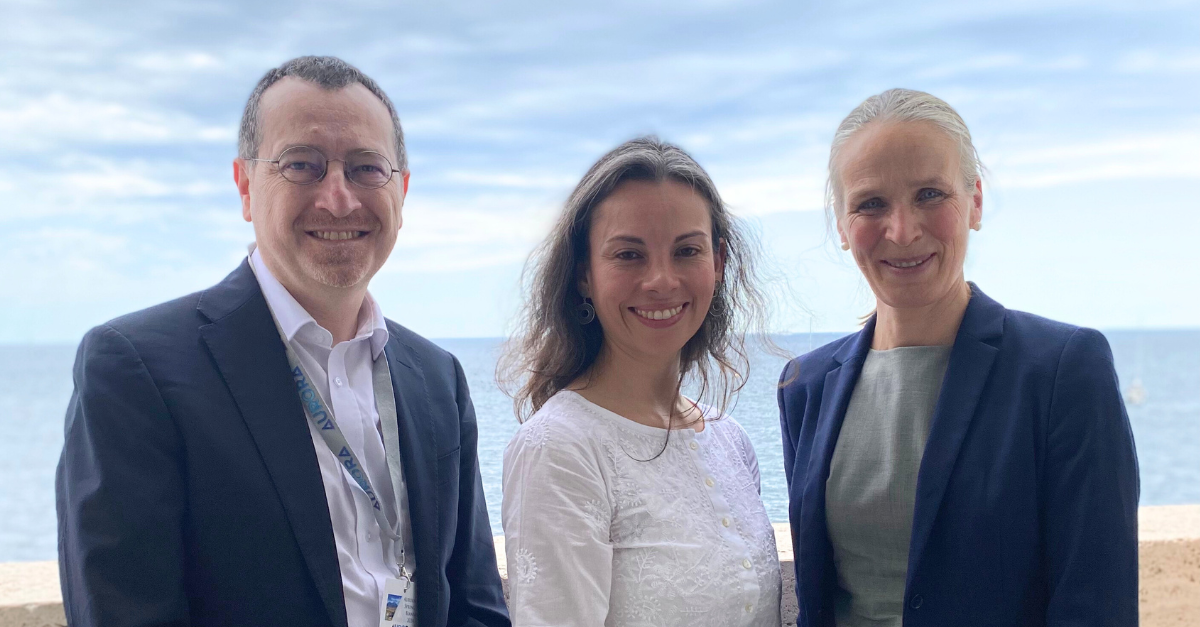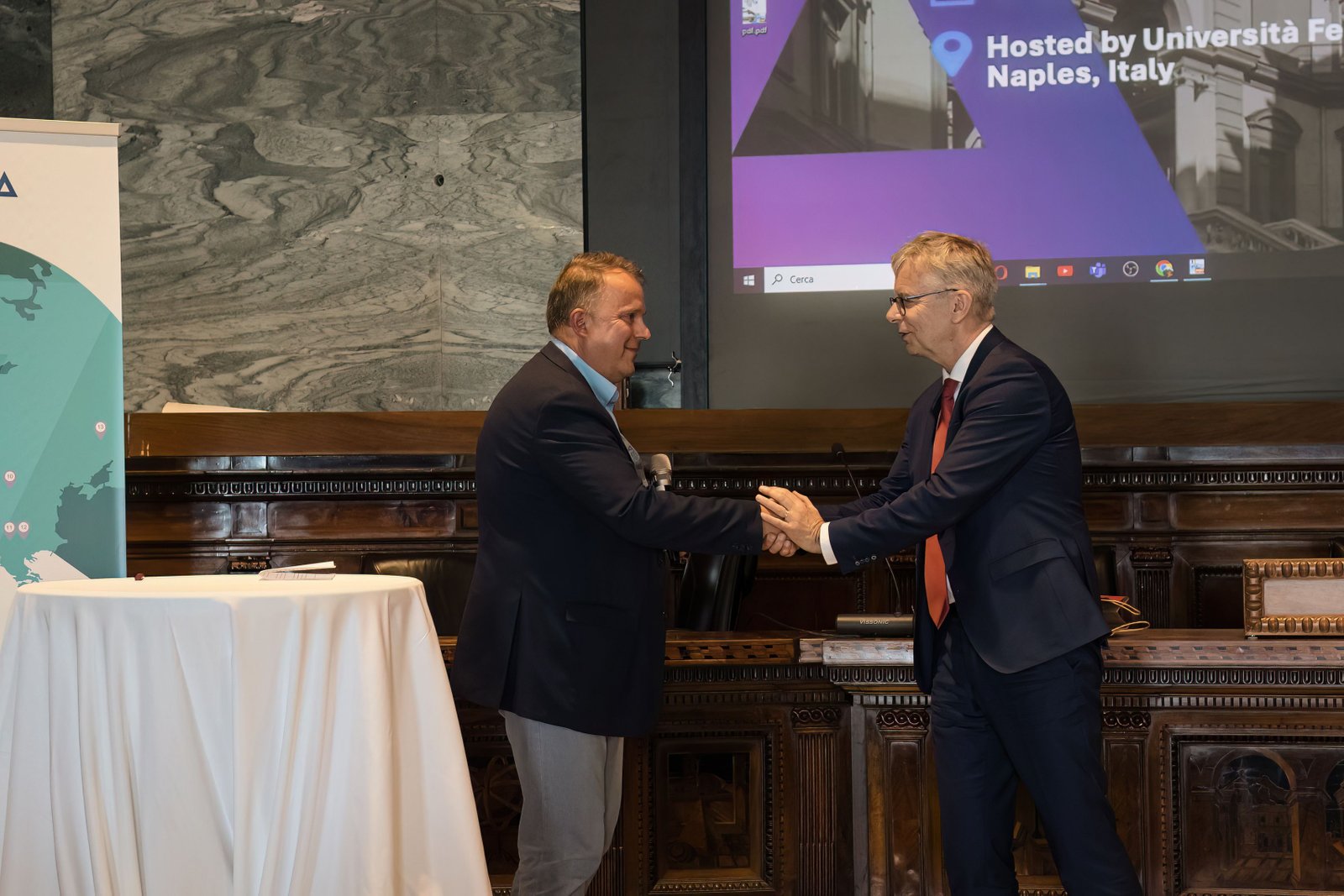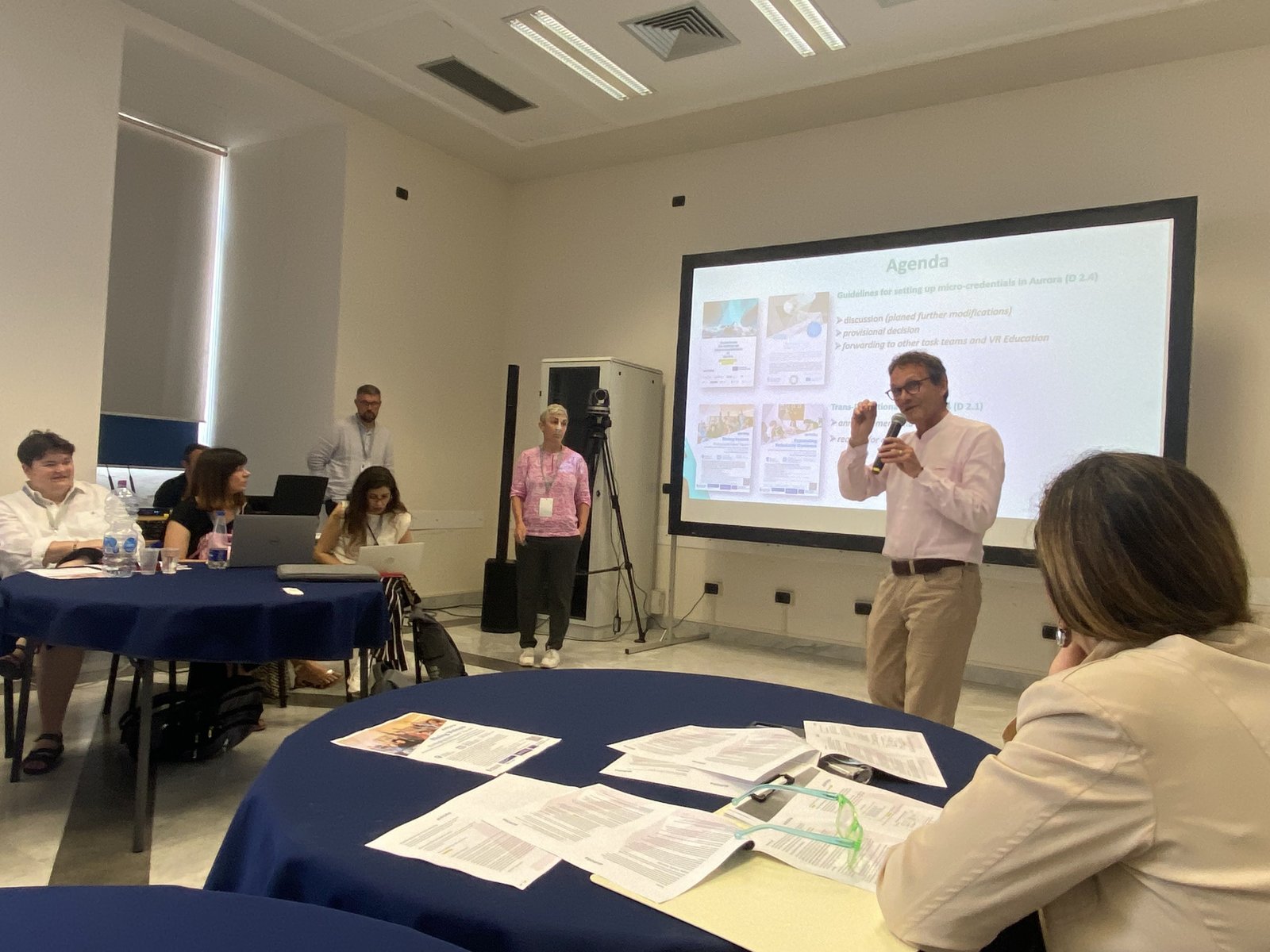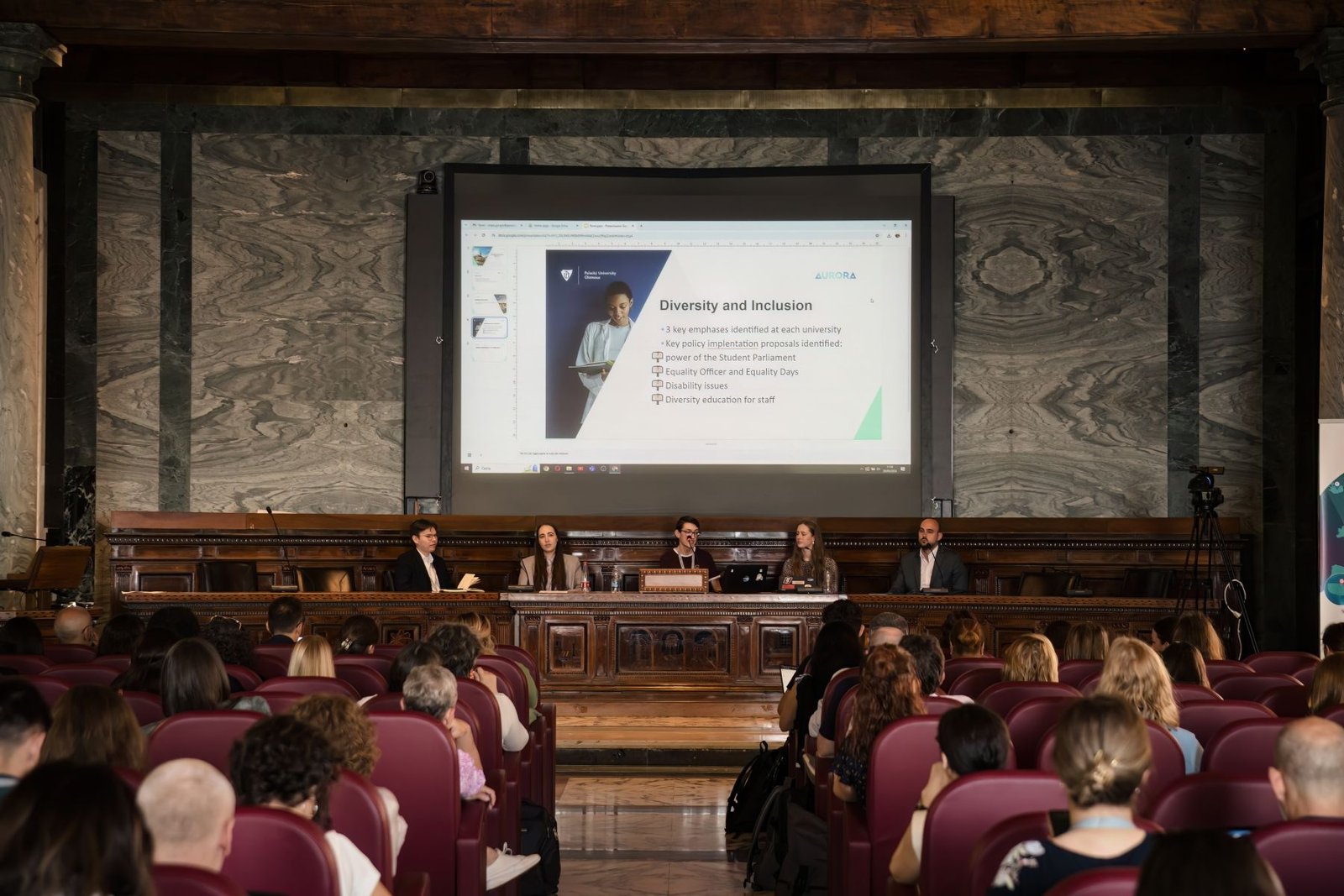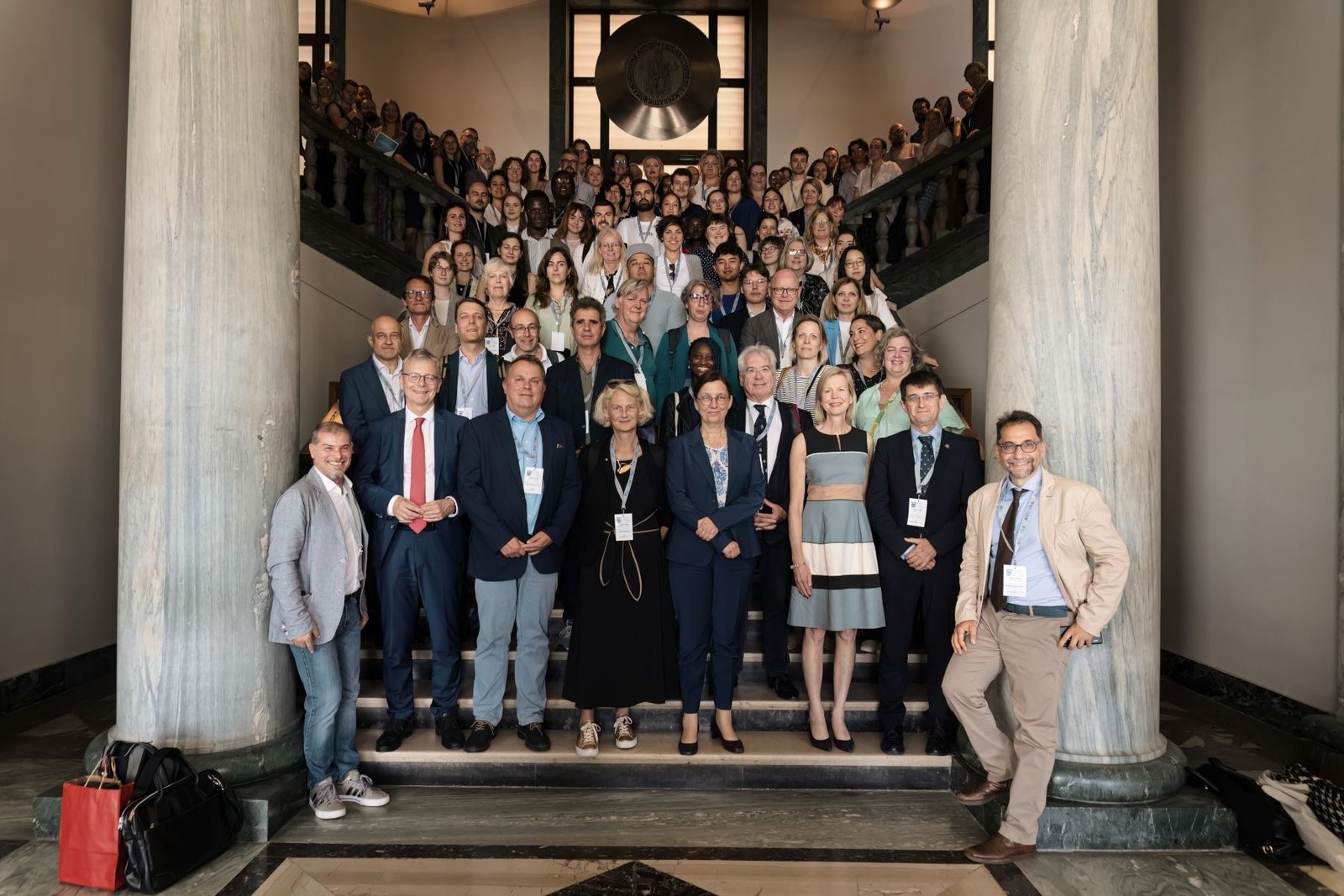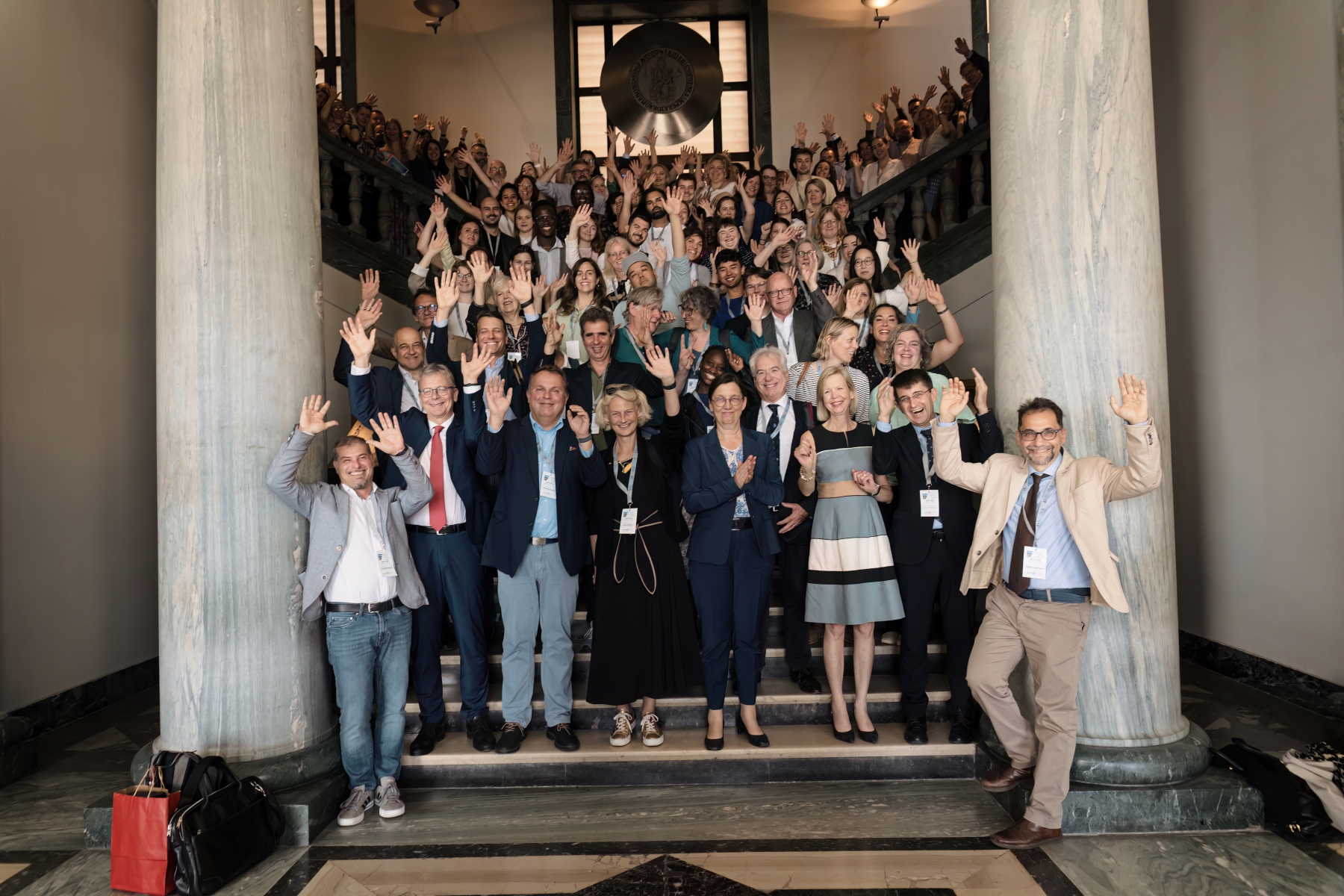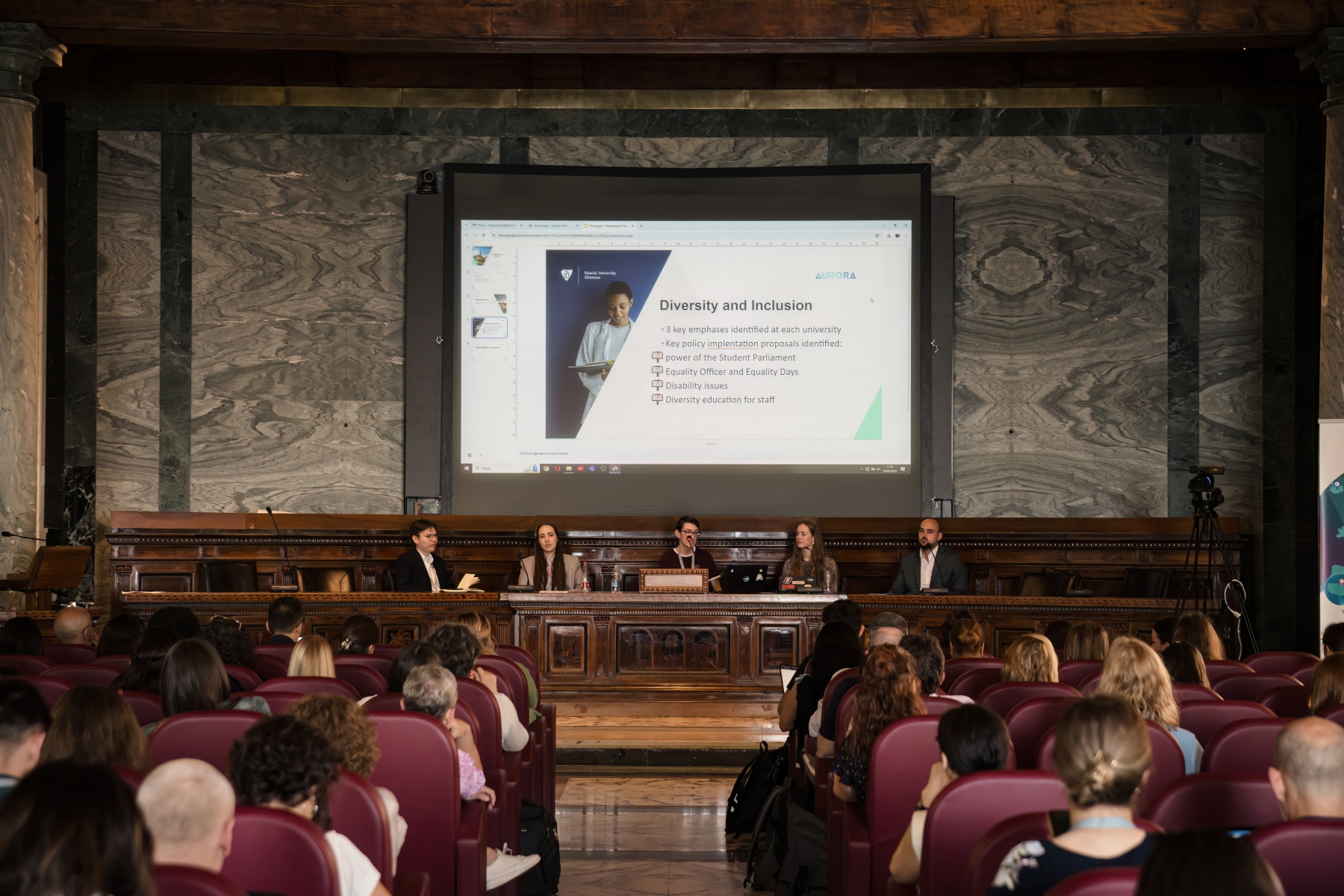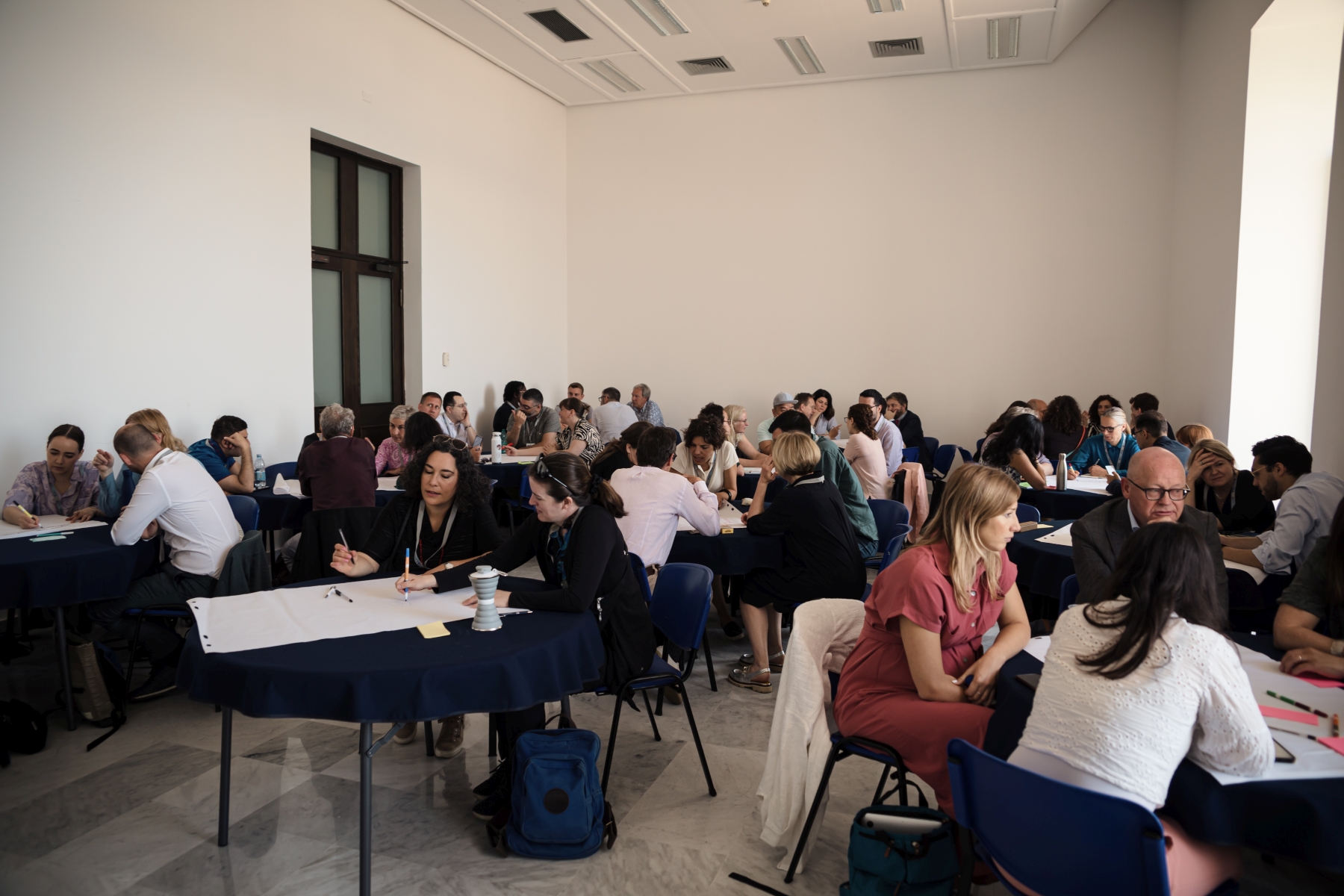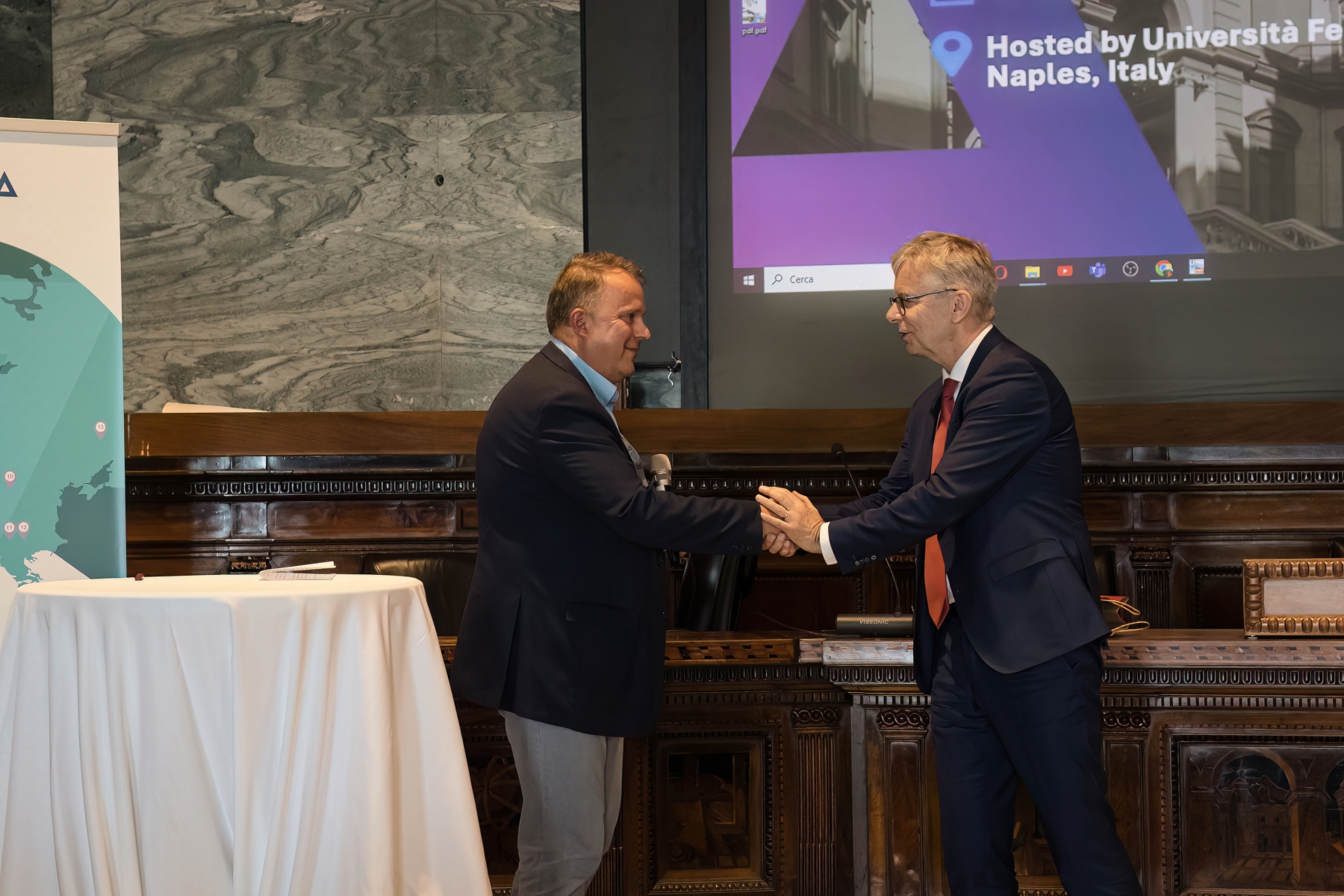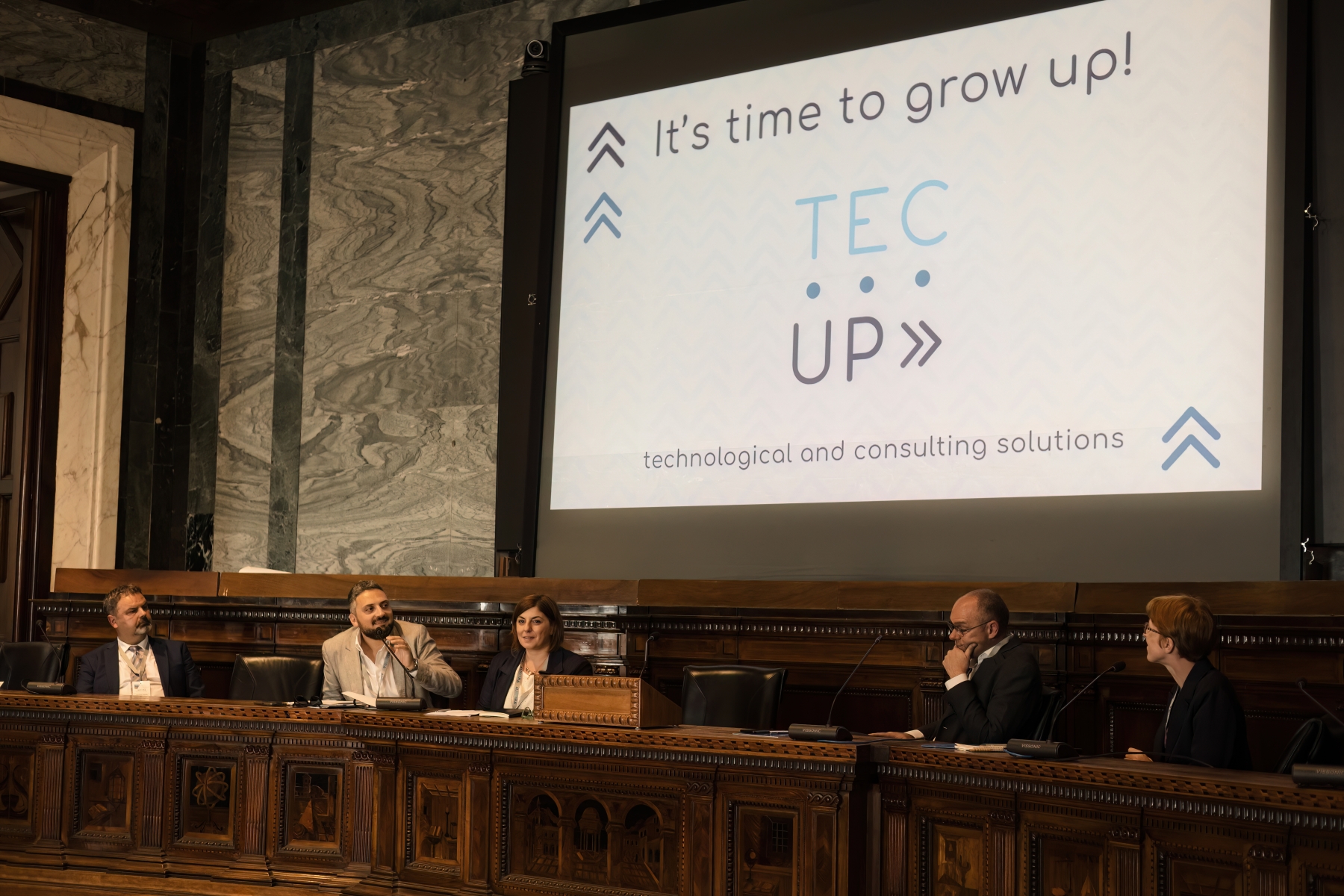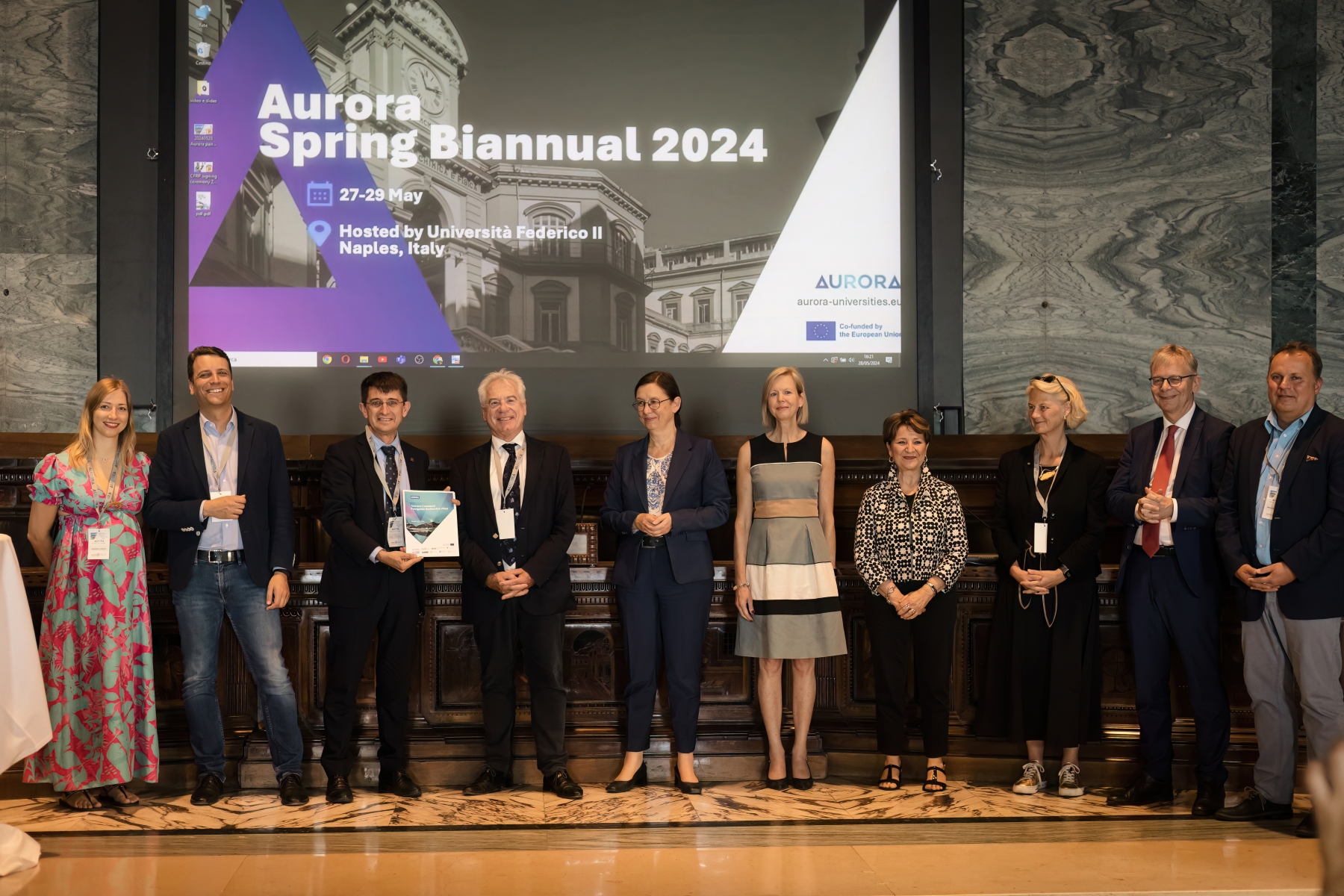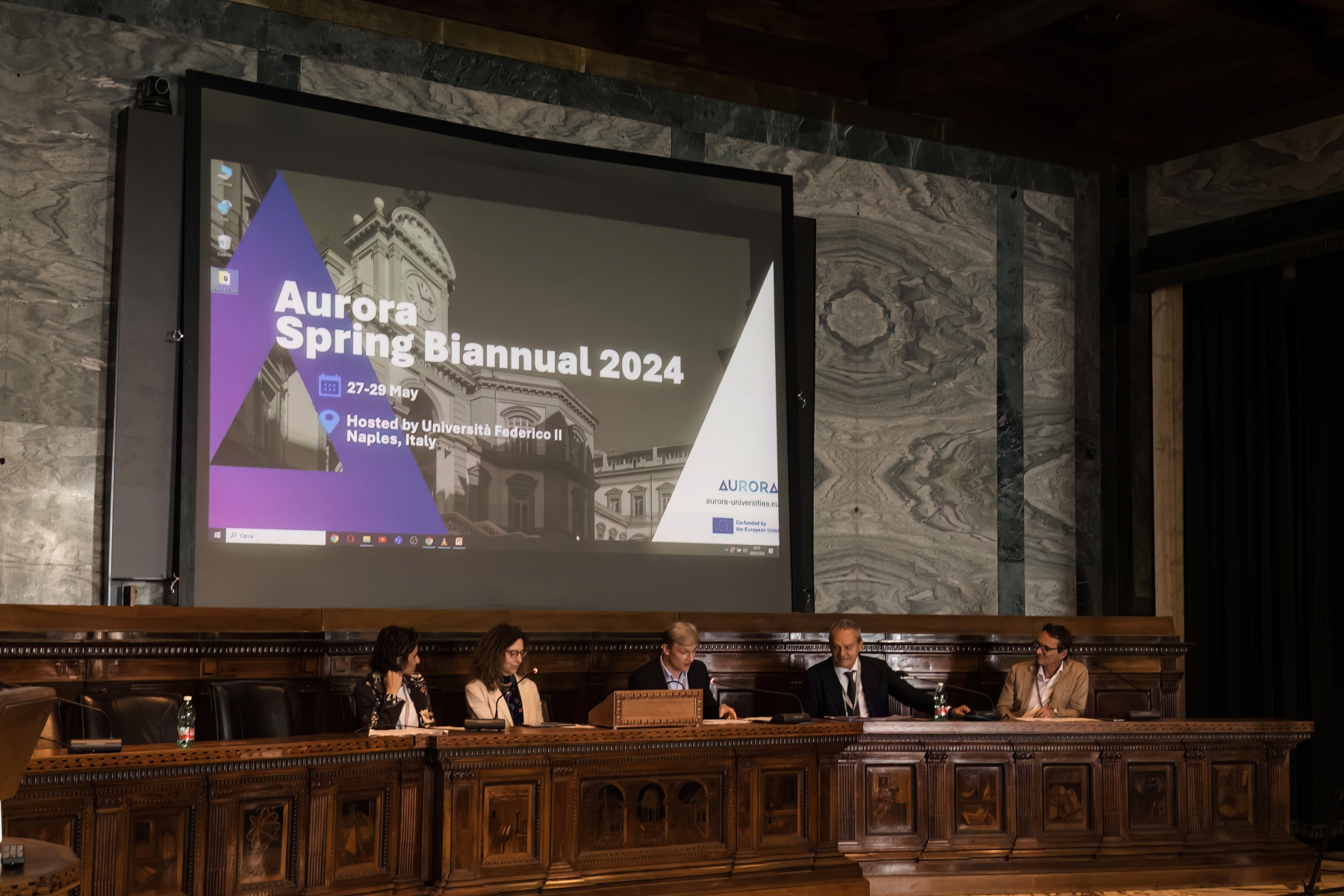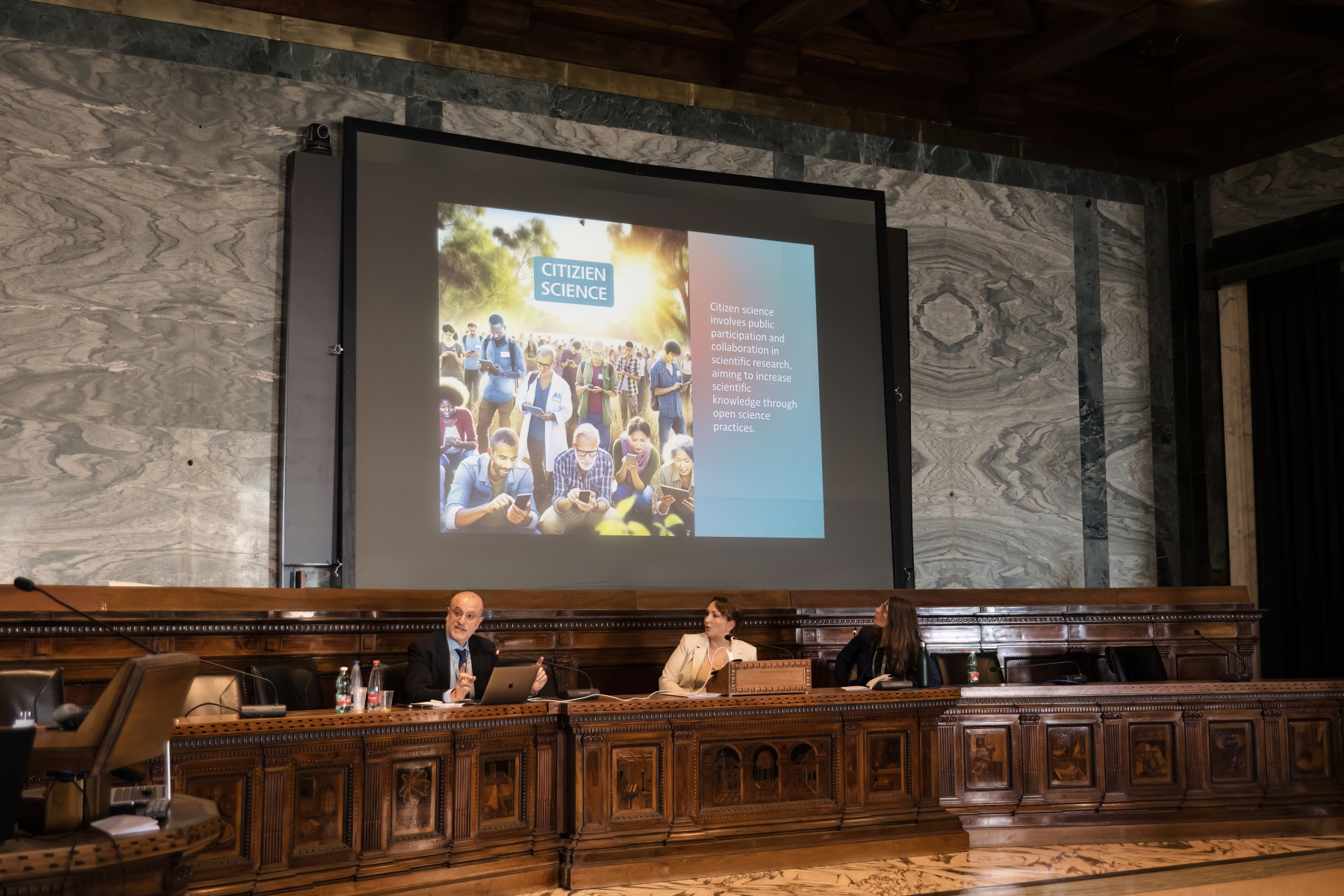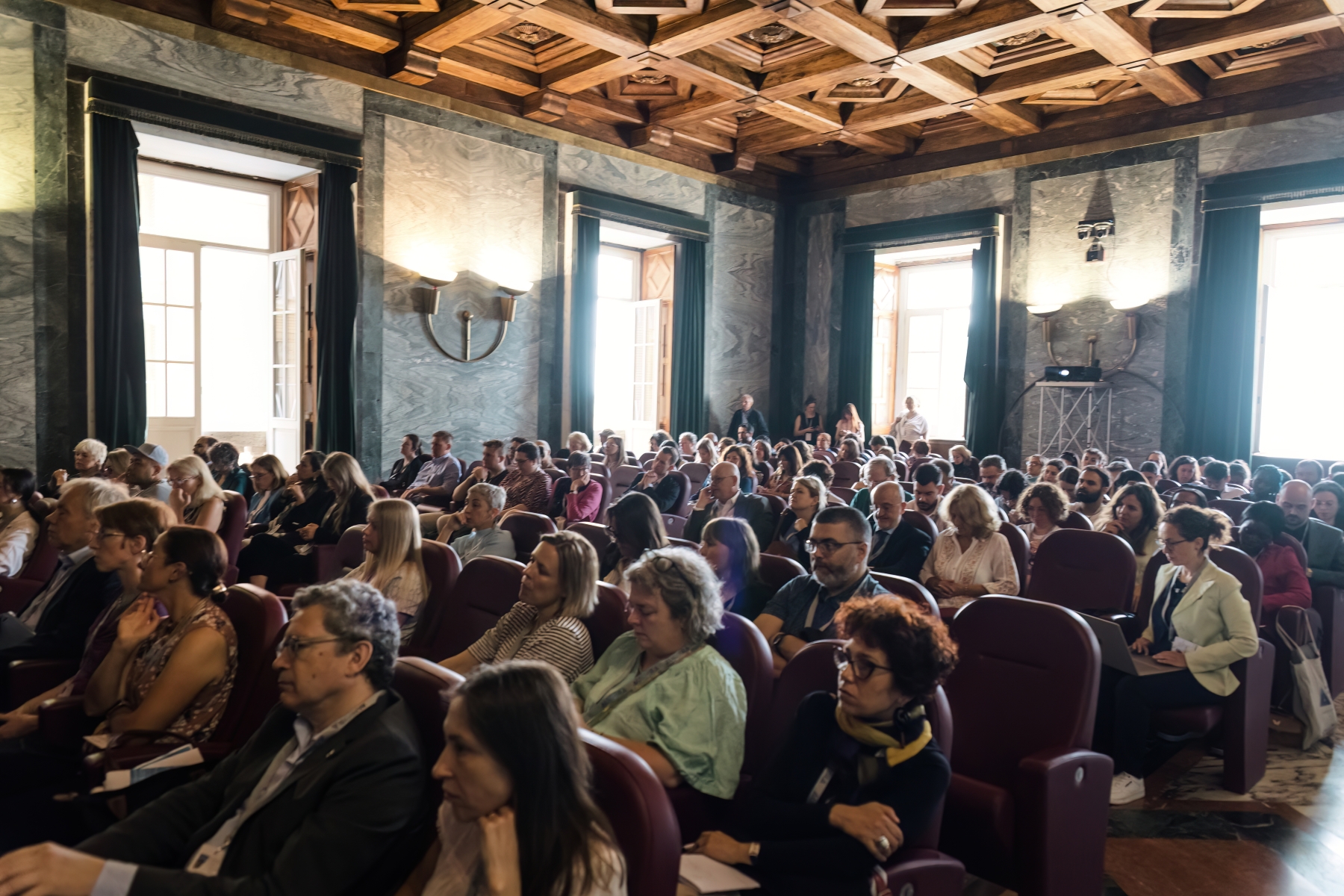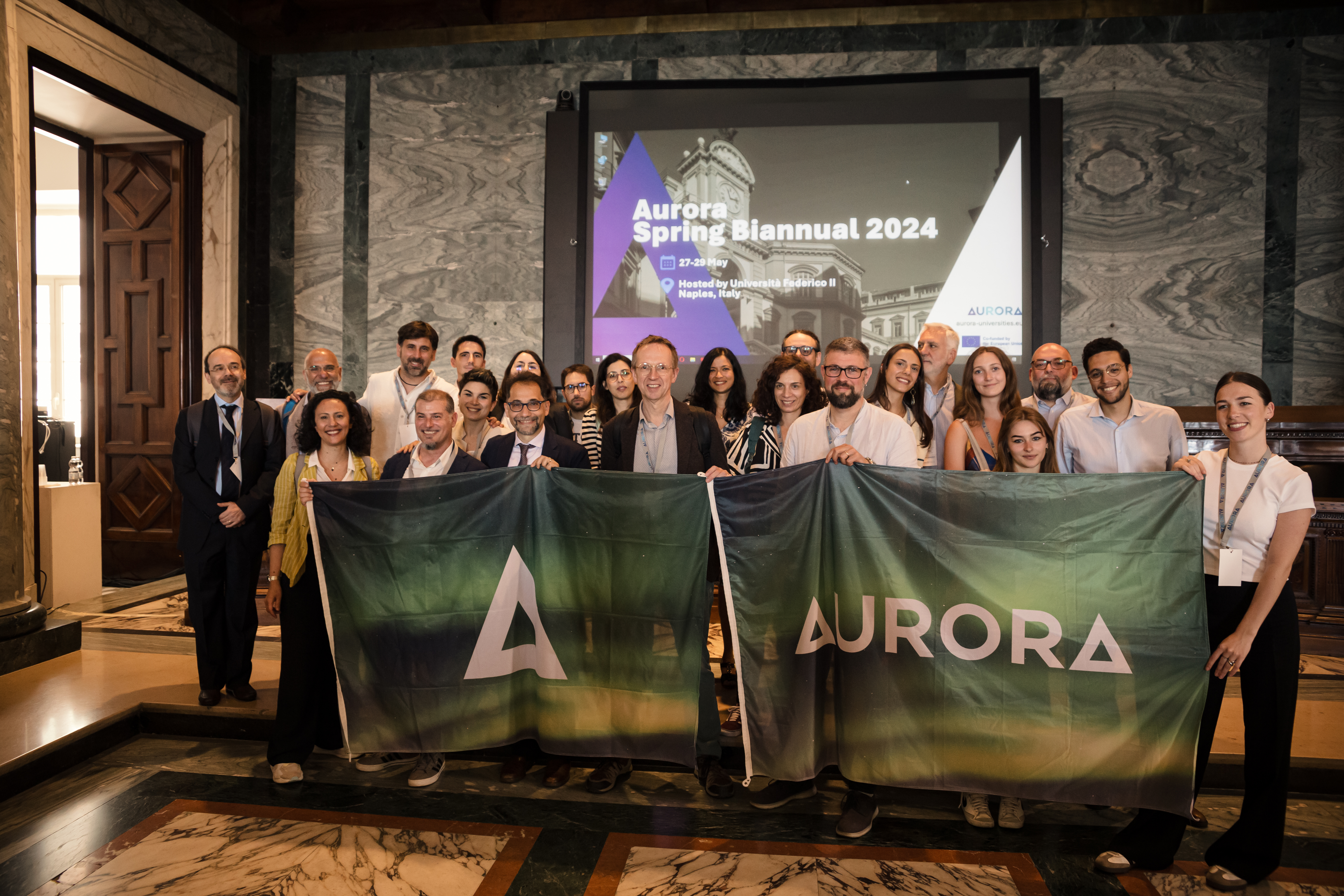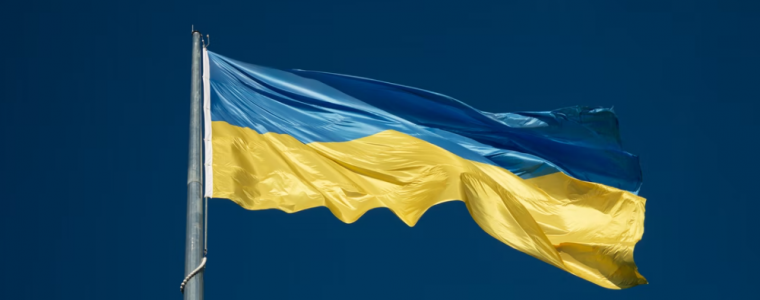During the Aurora Spring Biannual 2024, academics and researchers Barbara Buchenau, Lina Penagos and Pasquale Maffia engaged in a conversation on health and well-being, joint education and how new study programmes can be invented, in which not only students and educators are involved, but also researchers, stakeholders and professionals in the fields for which our students are being trained. They will also discuss how research plays a critical role in creating innovative programmes using a transdisciplinary approach.

This conversation was led by Barbara Buchenau, professor of North American Studies from the University of Duisburg-Essen and Lead for Aurora 2030 Work Package 2 (WP2) for Transdisciplinary European Research-driven Educational Hubs. She interviewed Pasquale Maffia, professor of Cardiovascular Immunology at the University of Glasgow in the United Kingdom and professor of Pharmacology at the Università Federico II of Naples (UNINA). Pasquale leads Task 2.3 on Establishing the Hub for Health & Well-Being within WP2, alongside Co-lead Lina Penagos, researcher in the field of Peace and Development, as well as Project Manager of EUR-LIVE project at the Université Paris-Est Créteil (UPEC).
Transdisciplinarity in Education and Research in Health and Well-being
Barbara: Today, we’re here with Lina Penagos from UPEC and Pasquale Maffia from UNINA. I’m Barbara Buchenau from the University of Duisburg-Essen in Germany. What we have here is a sociologist, someone in the medical field, and me in cultural studies. The three of us are trying to do something in the Health and Well-being hub, trying to improve our education in health and well-being, and trying to wrap our minds around the fact that education in health and well-being is always a national affair.
Although health and well-being do not really care for national borders, our educational systems do. What needs to change in our education and in our research? Lina, what would you say is the most pressing element in what you’re doing right now?
Lina: What we’re facing are complex problems, and it is important to educate and train people in transdisciplinary thinking and methodology. To enable this, we need to combine our forces, which is what we’re doing within this hub. This is a very good example: I’m a political scientist, Pasquale is in pharmacology, and you’re in cultural studies.
In Paris, we have many examples of people in medicine and people working on cultural issues, who need to share their work with others to be able to respond to our societal challenges. For instance, we have students from different disciplines – environment, sociology and medicine – who have successfully worked together by trying to solve specific vulnerability issues.
Barbara: So it’s not that we’re trying to unlearn our disciplinary languages, but that we’re trying to learn to use our disciplinary languages across disciplines to allow them to address a problem together, such as urban developments in Paris, for instance.
Another example is cardiovascular health care. It’s a hugely diversified topic in terms of how it affects women and men, how it is visible in people who are dark-skinned or light-skinned. Very often, people are actually suffering from diseases because patients and doctors cannot properly identify these diseases. Pasquale, can you tell us more?
Pasquale: We’re developing some projects in Africa at the moment where we need to face the issue of working together between different disciplines in a multidisciplinary manner. Also, we need to be as inclusive as possible of the diversity present on the ground. For example, when we’re trying to implement a programme for controlling blood pressure in people living in slums, it’s impossible to have only doctors engaging with them because sometimes, people don’t always listen to doctors. So, we need to engage with local stakeholders and social scientists who can explain to us the diversity and priorities for these specific social settings.
Today, working together within different disciplines and in a global environment is fundamental. Translating all of this at the teaching level and interacting with students is crucial. This is what we are trying to do with the Health and Well-being hub in Aurora.
Workshop on Vulnerability
Barbara: At the Aurora Spring Biannual, we held a workshop where many disciplines, students, and stakeholders came together. How are we able to talk together as professionals in cultural studies, humanities, medical field, and social sciences?
Lina: We’re trying to build things. Together. Building things together requires the participation of everyone – stakeholders, researchers and students. Students are at the heart of what we’re doing. During this Workshop on Vulnerability, we had the opportunity to learn from different experiences from researchers, and students who are studying vulnerability and aging, which is also a societal issue.
It was important to share each other’s experiences in these fields during the workshop. It helped us to understand, first from a scientific point of view, and then, how to collaborate and cooperate in pedagogical elements so that we can build joint programmes and courses together, which is the aim of our activities in the Health and Well-being hub in Aurora.
Barbara: During the workshop, we also organised “lunch trains” as a way to connect people across disciplines and across student, researcher, educator, and practitioner levels. That’s just one of the ways we started conversations. For instance, in the 17th century, “vulnerability” as a concept was used to defend slavery. The term itself thus has a long cultural history that has worked well but that has also damaged a lot of human lives. I think it’s an important concept to address neutrally across the disciplines.
Bridging the Gap to Respond to Sustainable Development Goals
Barbara: Our universities are founded in regions in the middle of urban settings where urban planners find that education must be brought in to bring about positive change. That is one of the major questions for us: can education and can universities bring about positive change and contribute to the United Nation’s 17 Sustainable Development Goals (SDGs)?
Pasquale: We’re trying to address some of the 17 goals developed by the United Nations to make a better world, like health inequalities, better education, and improving health and well-being.
The Workshop on Vulnerability was held in the new building of the Università Federico II of Naples in Scampia, a socially deprived area. This was an initiative undertaken by the university to interact with areas that are less fortunate than the city of Naples. The workshop brought a lot of exchange with the local people.
Lina: UPEC is at the heart of one of the most vulnerable places in the southeast of Paris. Our philosophy is to be aligned with the SDGs. So, all our pedagogical and scientific activities are aligned with good health and well-being, gender equality, as well as the different partnerships we’re organising together.
It’s a very important contribution of us and the participants in the workshop, hoping to build things together from the experiences we share. If we’re trying to address societal issues, we need to begin from shared experiences. This is exactly what we’re doing in Aurora.
This exchange is part of a series called “A Conversation With…” undertaken within the framework of the Aurora 2030 project supported by the European Commission. It is an interview format that focuses on a specific subject and is meant to inspire its readers to act and catalyse positive impact. This conversation is available in its original format on the Aurora YouTube channel.
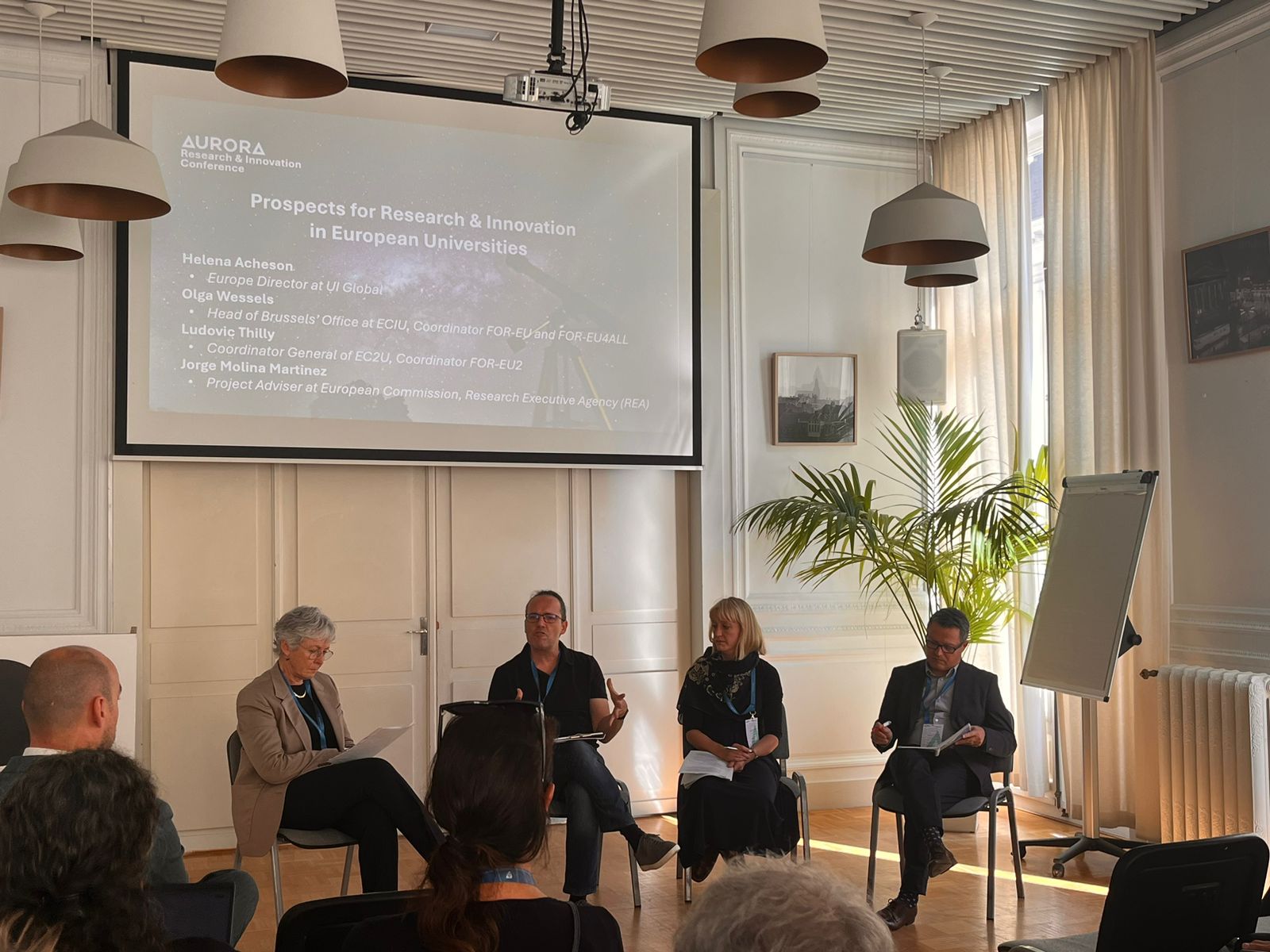
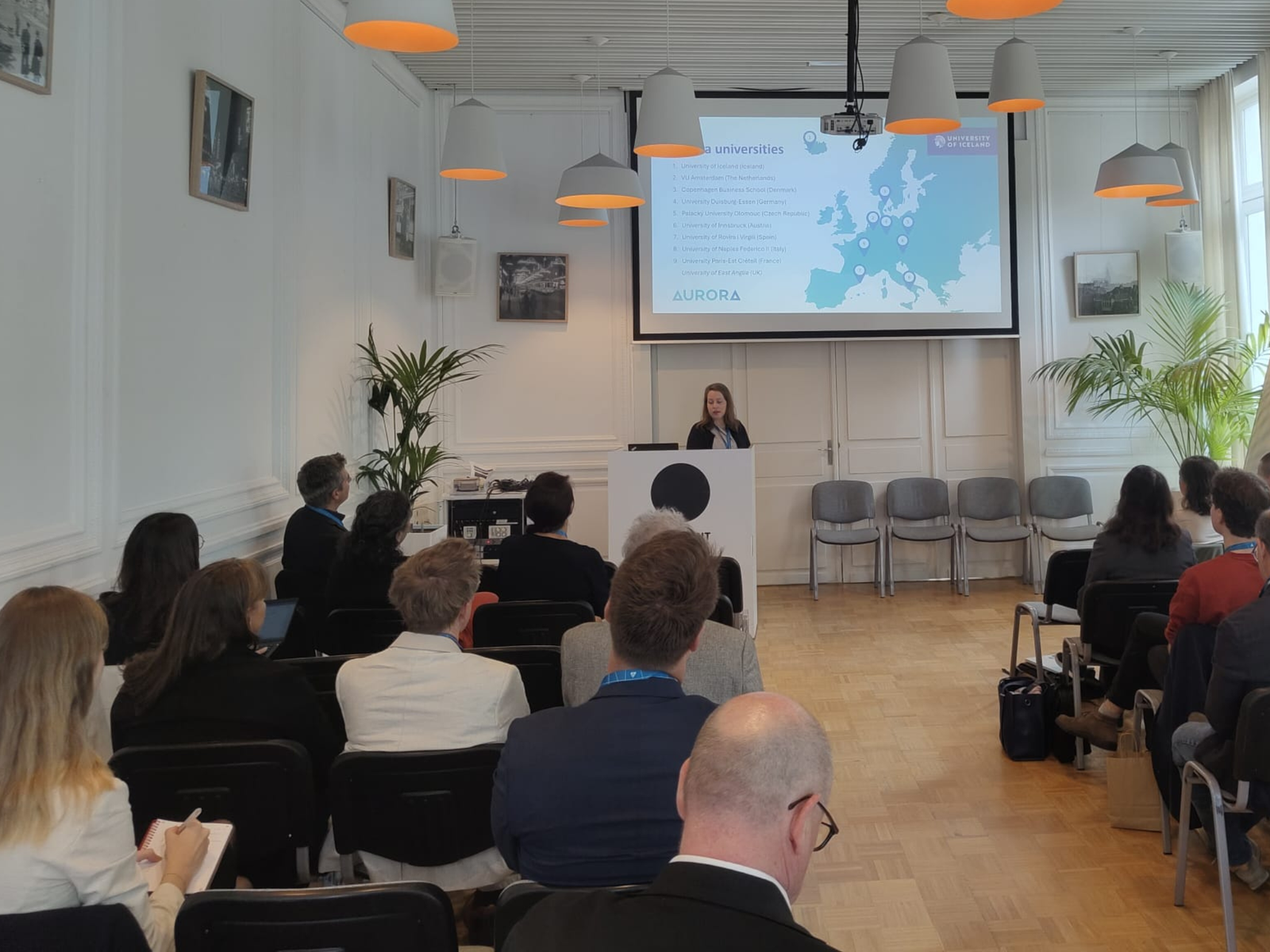
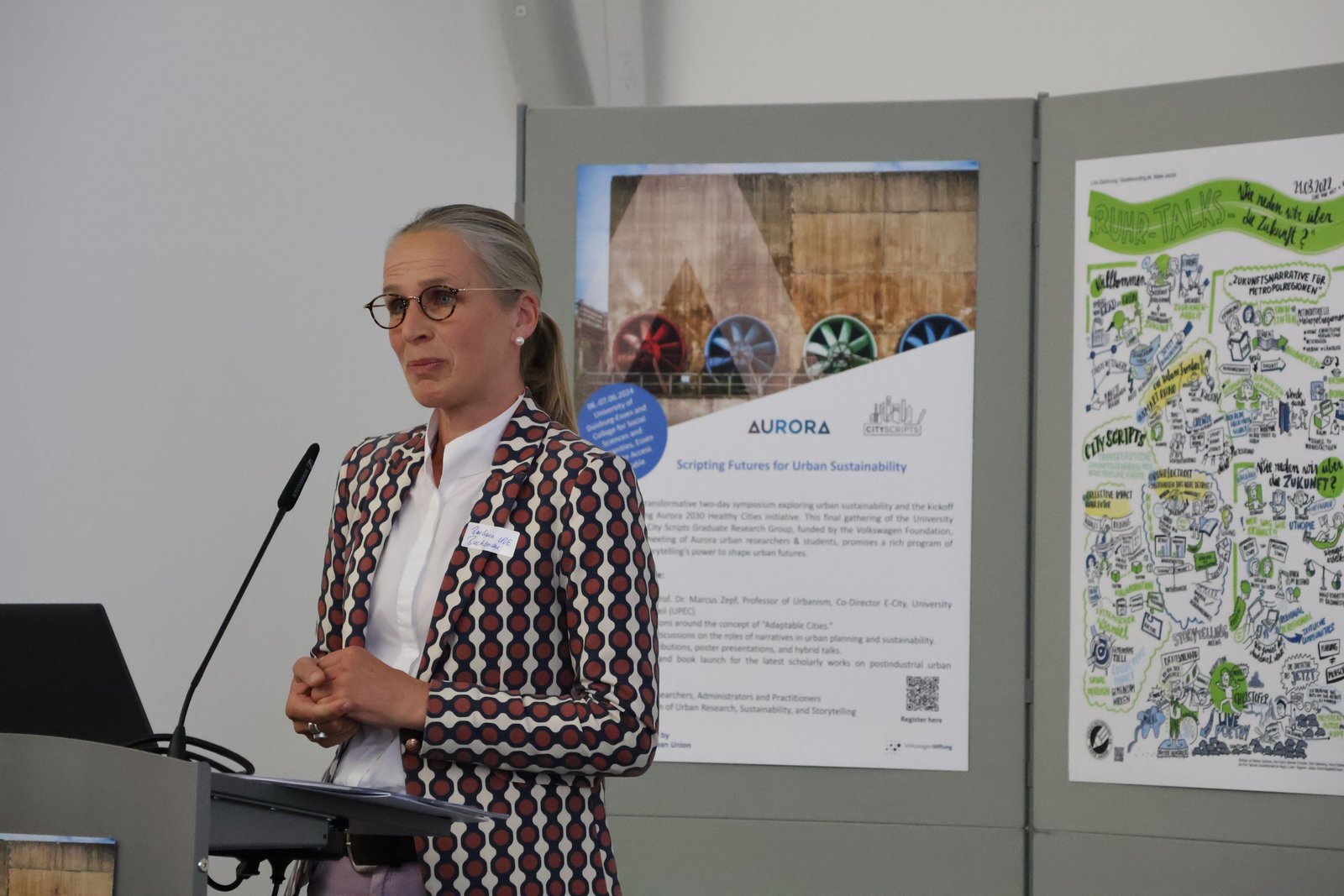
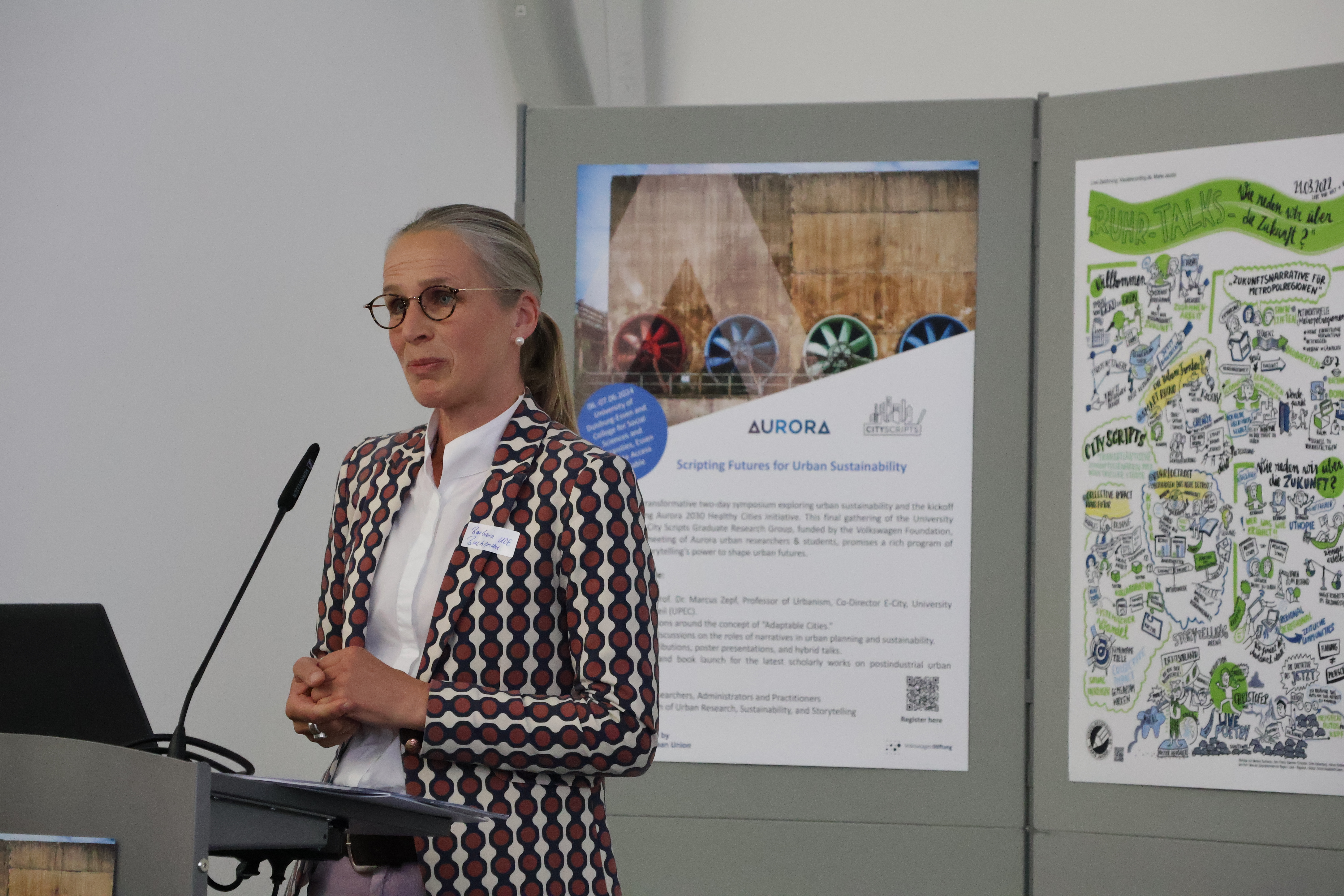 Welcome Address by Barbara Buchenau
Welcome Address by Barbara Buchenau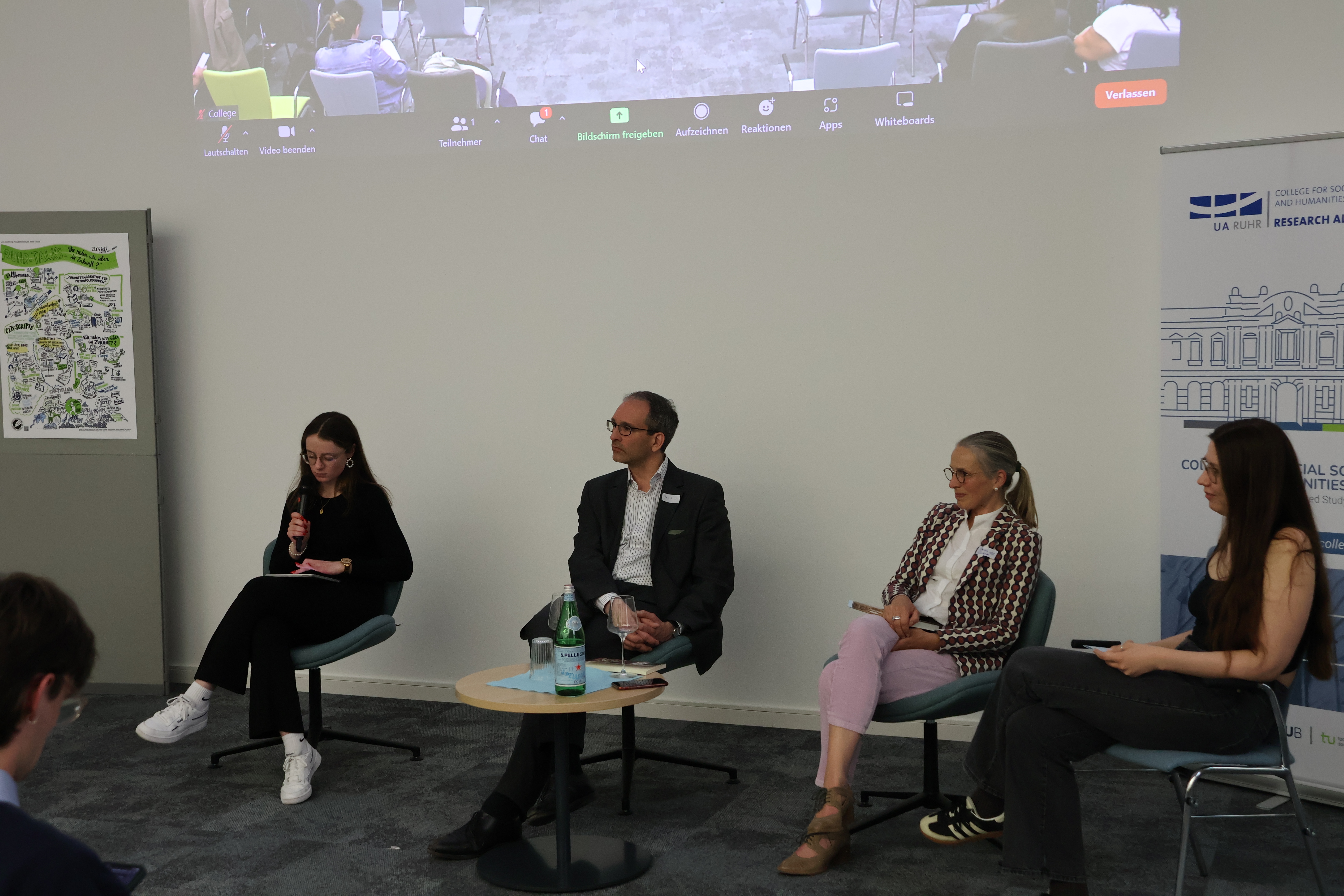 Students as Critics of Academic Writers. Left to Right: Pia Schümmelfelder (MA student UDE), Jens Gurr (editor of City Scripts, 2023, UDE), Barbara Buchenau (editor of City Scripts, 2023, UDE), and Dana Sitnikov (MA student UDE)
Students as Critics of Academic Writers. Left to Right: Pia Schümmelfelder (MA student UDE), Jens Gurr (editor of City Scripts, 2023, UDE), Barbara Buchenau (editor of City Scripts, 2023, UDE), and Dana Sitnikov (MA student UDE)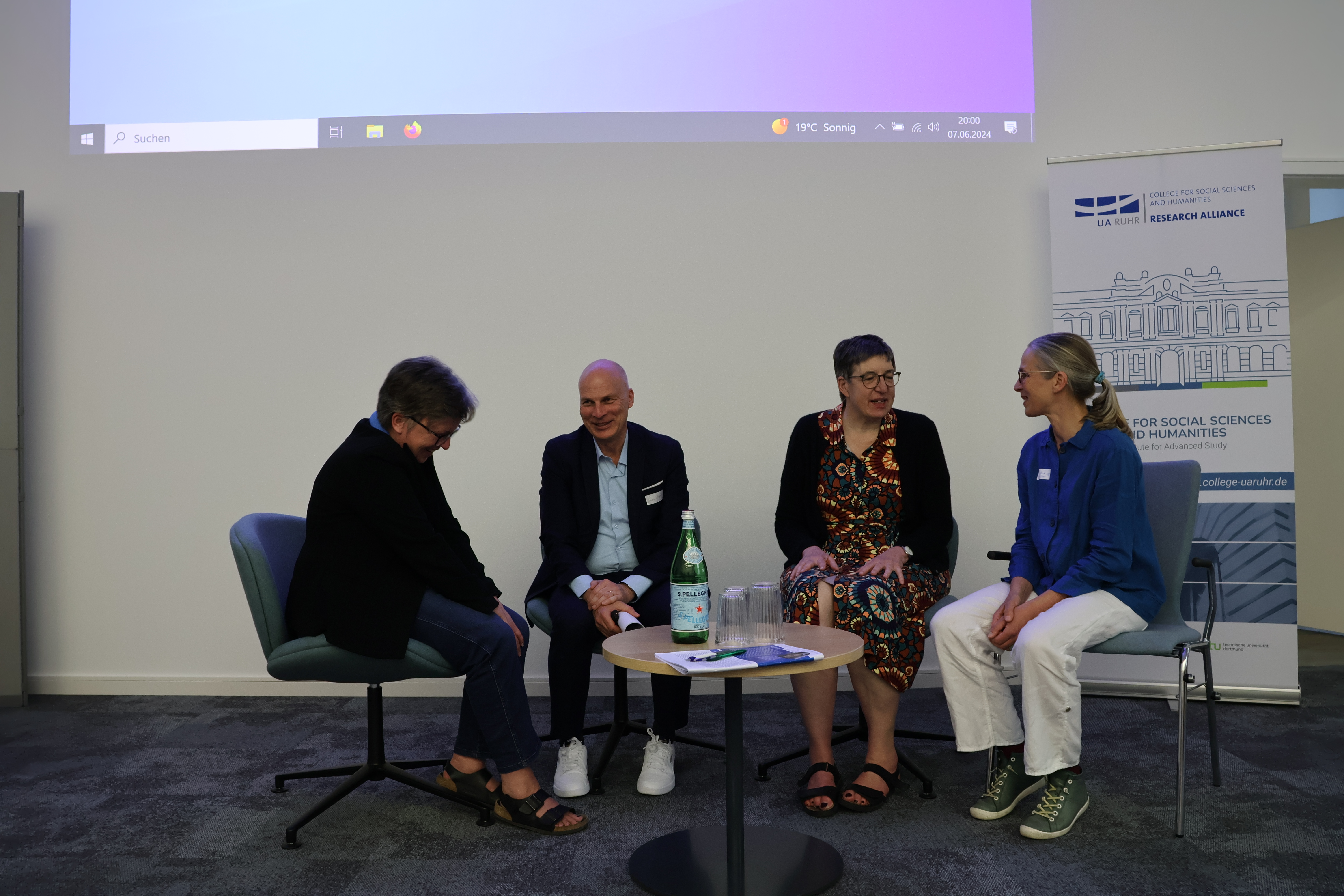 Brainstorming for Future European Transdisciplinary Research and Education. Left to Right, Anke Hinney (University Hospital Essen), Marcus Zepf (École d’Urbanisme de Paris, UPEC), Petra Günther (International Office, UDE) and Barbara Buchenau (Faculty of the Humanities, UDE)
Brainstorming for Future European Transdisciplinary Research and Education. Left to Right, Anke Hinney (University Hospital Essen), Marcus Zepf (École d’Urbanisme de Paris, UPEC), Petra Günther (International Office, UDE) and Barbara Buchenau (Faculty of the Humanities, UDE)